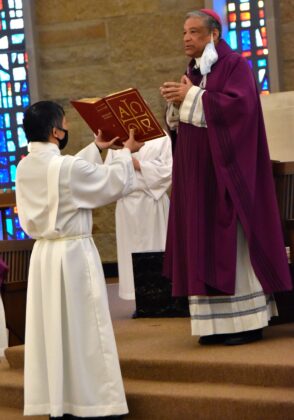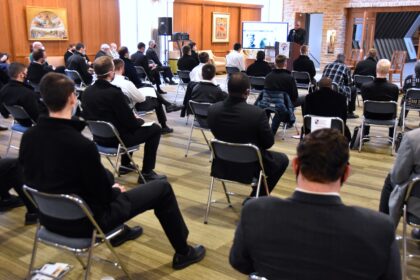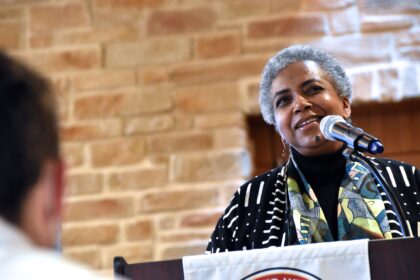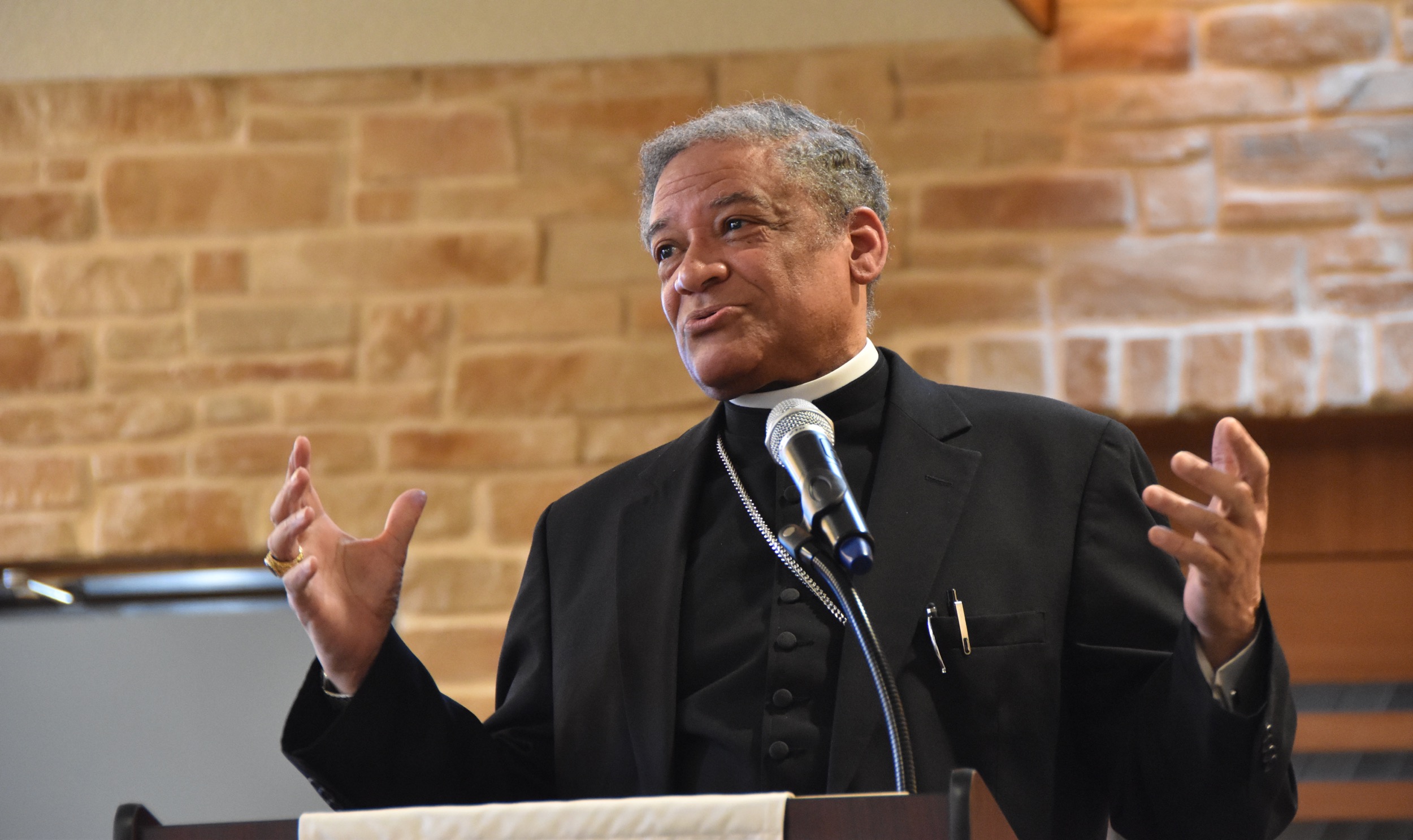
“We must shape our parishes and institutions to be oases of hospitality where all are welcome,” said Bishop Joseph Perry.
Bishop Perry, auxiliary bishop of Chicago, was the presenter at today’s Dehon Lecture at Sacred Heart Seminary and School of Theology. His topic: “The Canonization of Fr. Augustus Tolton: Significance for Race Relations and Interculturality.” It was an opportunity to speak about a man who embraced a church that did not always embrace him, a black man born into slavery.
It was also an opportunity to note the challenges of racism and separation that American society continues to grapple with today, including the Catholic church.
Fr. Tolton, also known as “Fr. Gus,” is thought to be the first publicly known African American to be ordained as a Roman Catholic priest. Fr. Tolton studied in Rome, where he was ordained on Easter Sunday in 1886 at the Basilica of St. John Lateran. He ministered in Illinois, serving at his home parish in Quincy, and later in Chicago. He was declared venerable by Pope Francis in 2019.
“Why declare him a saint?” writes Bishop Perry on the website for the archdiocese of Chicago. “Fr. Tolton is a saint for doing things priests do, namely, care for people, ministering to their desperate needs, anointing them with the saving graces of the sacraments, forgiving their sins, preaching a word that works to transform the Church to its more authentic face before the world and describe for people how they can give an authentic response to God in genuine discipleship. But Fr. Tolton received no rewards or citations in life. Society and the Church did not allow Tolton to do these priestly things so easily assigned to him. He suffered genuinely in that these priestly things were administered from a black face, black hands and a black heart. 19th century America placed dark skin at the bottom of the color pyramid.
“This has become, unfortunately, an indelible stigma in the American psyche. Even certain scripture passages were manipulated to justify people of African descent as preordained by God for perpetual servitude and haphazard treatment, thereupon, blackness dismissed as a universal symbol of inferiority…

“Tolton’s sanctity emerges from an experience of the cross. His goodness easily elicits our affection and our empathy, a goodness that attracted people of whatever background to his sermons and ministrations and counsel. He was a bright light in a dark time.”
In reflecting on Fr. Tolton’s life during his presentation, Bishop Perry said that the Church must also reflect on itself. He noted the disconnect of “singing songs and saying prayers about being brothers and sisters in Christ but then living separately and worshiping separately; our words ring hollow.”
He urged those present – especially the seminarians, religious and priests – to create parish cultures that are “welcoming to all, that never treat anyone as a stranger or as someone who does not belong.”
Dr. Paul Monson, assistant professor of Church History at SHSST, and Celia Jackson, a retired attorney and former director of the Social Concerns Office for the Archdiocese of Milwaukee, were respondents to the bishop’s presentation.

Ms. Jackson spoke of the inconsistencies of a Church that has often excluded African Americans, yet helped immigrant communities, at times establishing national churches for immigrant Catholics. “So many Christians of African descent belong to Protestant denominations,” she said, adding that many do not feel welcome in the Catholic church.
Dr. Monson reflected on Fr. Tolton’s personal history alongside the history of Catholic Church and society in general. Fr. Tolton studied in Rome because Black men would not be welcome in Catholic seminaries in the United States until the 1950s. With the support of his parish pastor and other priests in his hometown of Quincy, IL, Fr. Tolton was able to study for the priesthood at the Pontifical Urban College “de Propaganda Fide.” Dr. Monson noted that when Fr. Tolton returned to the United States he was not a priest of any diocese, but in reality, a Roman missionary sent back to minister in a homeland that did not fully accept him because of his color.
It was in Rome, said Dr. Monson, that Fr. Tolton experienced a global church that welcomed him.
“O God, we give you thanks for your servant and priest, Father Augustus Tolton, who labored among us in times of contradiction, times that were both beautiful and paradoxical,” begins the prayer for Fr. Tolton’s canonization. “His ministry helped lay the foundation for a truly Catholic gathering in faith in our time. We stand in the shadow of his ministry. May his life continue to inspire us and imbue us with that confidence and hope that will forge a new evangelization for the Church we love.”
Click here to read more about Fr. Augustus Tolton on the website of the Archdiocese of Chicago.
Click here to view photos from the Dehon Lecture.
After the lecture, Bishop Perry sat down with Fr. Vien Nguyen, SCJ, vice-rector of SHSST, to continue the conversation about diversity in the Church and society. Click here or on the image below to view the 13-minute interview.

